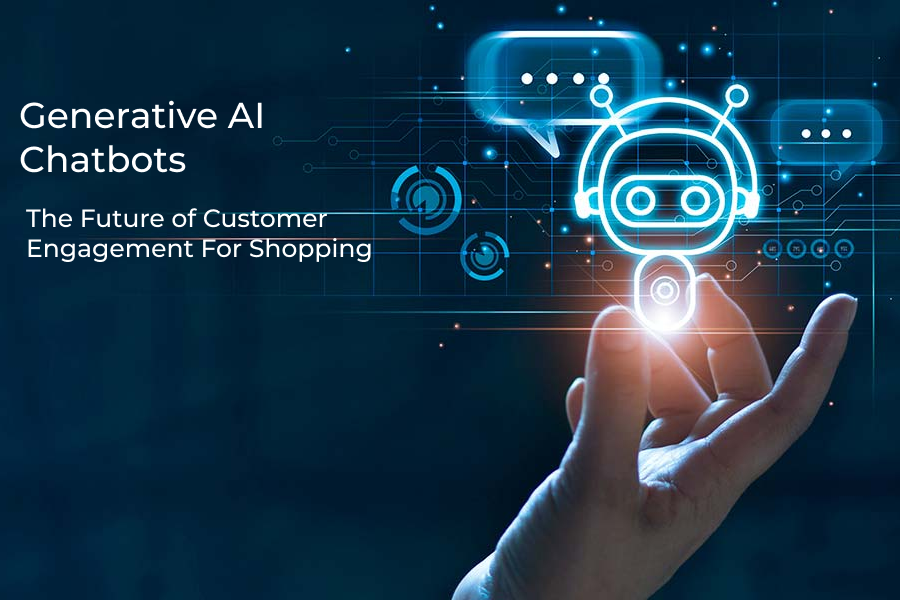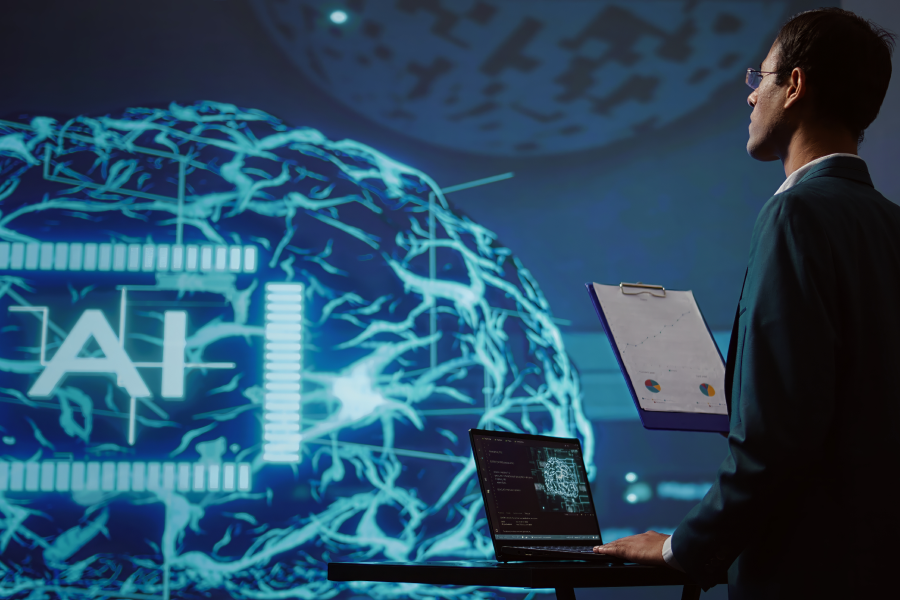The branch of Artificial Intelligence(AI) is one of the most sophisticated and advanced branches of modern technology. AI is often termed as the smart behavior that is demonstrated by programmed machines by perceiving the environment and using the information already present. Artificial Intelligence is also stated as the intelligence by which certain machines are able to have abilities very similar to the cognitive skills of the human mind. But different AI-powered machines are being built with varying goals and ability structures in consideration. The most conventional goals or tasks accomplishing branches of AI are planning, reasoning, perception, natural language processing and representation of knowledge.
Artificial Intelligence is also being empowered with psychology, linguistics, philosophy, statistics and computer science concepts that make the AI highly powerful in accomplishing various tasks which previously only humans could have achieved. The two other abilities of Artificial Intelligence that are being highly focused on by AI researchers are Social Intelligence and General Intelligence. The social intelligence branch consists of recognizing, interpreting, processing information and even stimulating various human emotions or feelings. The other social intelligence skills like multimodal sentiment analysis and textual sentiment analysis allow a much better interaction of the AI with humans. The general intelligence fragment of AI holds problem-solving skills which allow the AI system to solve a task at hand just as human intelligence would have worked.
One of the most surprising aspects of AI is its learning ability, just like a human can become an expert in a certain field by daily learning and application the same does happen with AI. The abilities of Artificial Intelligence are being extensively used in the practice of medical science. The AI systems which are mostly being used in healthcare do employ the benefits of machine learning algorithms that work on huge chunks of data to acquire knowledge.
Then the acquired knowledge is used by the AI to provide a helpful output for the human practitioners that not only improves the patient experience but also sometimes solves a well-defined problem standing in front of doctors. AI has also been widely used in pandemic situations for contact tracing and analysis of patient symptoms. The mechanism of contact tracing operates by informing individuals who have been exposed to a person who has got Covid. There are several giant companies like Apple and Google who are working on deploying more efficient and robust AI-powered systems that can operate on smartphones through the use of API’s.
A prominent example is the outbreak risk software which is created by the Canadian company called BlueDot. The software uses natural language processing, machine learning techniques and infectious disease surveillance to provide highly beneficial outputs. The AI is also being used in perfect disease diagnosis in addition to a doctor’s diagnosis. This contributes to better human-centric treatment with the use of Deep Learning Algorithms and data analysis of patient history along with several reports and information makes the diagnosis more concrete and reliable. The AI also can provide the initial diagnosis by studying through patient’s test reports of ECG, skin analysis and CT scan analysis.
Development of Drugs and Personalized Treatment to Patients
It is important to understand that Artificial Intelligence is not a replacement for humans or doctors but they are to be looked upon as a super-strong technological ally of doctors inpatient treatment and other medical aspects. Artificial Intelligence has also found its effectiveness in the development of drugs and making the complicated process of drug development much simpler for human drug developers and researchers. Drug development does involve various levels of drug analysis even on the chemical composition fragmentation. Thus Artificial Intelligence is able to save a huge amount of time and money in the drug development industry by various processes. The prime tasks of AI included in drug development are:
- Identification of targets for intervening purposes.
- Discovery of ideal drug candidates.
- Clinical trials are rather slow and can be boosted with the help of AI.
- Searching and finding suitable biomarkers for proper disease diagnosis.
The modern machine learning algorithms induced in Medicine centered AI can analyze all the data regarding the origin of the disease along with its resistance mechanisms for pattern identification and identification of target points. The complicated process of screening potential molecule candidates is also simplified when the power of AI is induced in biomarker research. The patient’s case history and reports when thoroughly analyzed in a very short span can lead to shaping a personalized treatment for every patient and thus lead to a more effective healing process from any disease or ill condition.
Doctors also sometimes face difficulty in choosing among multiple treatments, in situations like this the opinion of the AI can help a lot. When it comes to the statistical and mathematical analysis of patients’ data, doctors are happily relying on AI and ML systems that can predict the patient’s response to specific categories of drug and treatment. The other highly advanced medical sector where Artificial Intelligence has found its use in the department of Genetics and gene editing. In the process of gene editing, the selection of the ideal guide RNA with the minimum side effect is a sensitive process that can be simplified by the use of Artificial Intelligence. The machine learning models help in predicting the correct degree of guide target interactions and the off-target effects on the ML system.
Human-centered AI which patient’s should be able to trust
Doctors and AI researchers have noticed that many patients from non-technical backgrounds are not able to trust Artificial Intelligence technologies when it comes to their health. This happens due to several reasons but many reputed doctors claim the reason to be the lack of involvement from patients. The patients should be able to check how Artificial Intelligence works and what benefits it provides to the doctors in order to provide a better diagnosis and treatment experience.
The doctors need to publicly organize seminars or sessions where they explain how the AI is helping them and not becoming an alternative to their expert opinion and treatment procedure. The health technologies which have AI and ML as their operating basis are showing exceptional results in accuracy and productivity which just cannot be ignored by doctors during the treatment. When patients and other non-tech backgrounds people will be able to witness the creation of human centered AI technologies they would have a better understanding of AI and how the operative methods are remaining with the highly accomplished AI researchers and doctors.
There are several electronic and mechanical embedded gadgets that have saved human lives for decades. If these gadgets and equipment didn’t exist then many lives would have perished. Just like those sophisticated gadgets the AI is also an advanced technology that has the capability of saving lives. So if any patient can trust their doctors then there is no reason to not flourish that trust upon the diligent AI researchers who are working with Doctors every single day to improve the treatment, drugs being used and the data being analyzed. In the medical field, time plays a major role, if a critical patient is brought in to the hospital very late there remains a greater chance the patient won’t make it through. So if AI can scan through the case history, symptoms and reports and offer a basic treatment then it can become the bridge between life and death.
The AI myths and the support which needs to be increased for AI development
Most doctors and AI researchers are confident about the rise and development of Artificial Intelligence in the future. They are able to envision a more popular and wider spread of AI across global healthcare in a much grander form to provide exceptional statistics and patient data. But there remains a long way to go for AI as there are dominant myths about it still prevailing to bloom throughout the internet. To make Artificial Intelligence technologies function in their full strength these myths are meant to be broken down. One of the biggest myths among them lies that AI will be replacing clinicians and doctors in the future.
The ability of doctors is not meant to be replaced by any technology no matter how intelligent it gets because the combination of knowledge and experience with the judgment skills they acquire is not to be replicated by any machine. But when talking about patients they shouldn’t be the ones taking the full blame for AI not being as impactful as it should have been by now. Several doctors also are resorting to the older ways of diagnosis and treatment and do not even have the knowledge about what AI is and how it can help them in providing the patients with better experiences of healthcare. The doctors unanimously need to promote and use the benefits of AI systems and only then patients will be able to fully trust the human centered AI approaches developing in the medical industry worldwide.
Certain medical institutions and medical practicing organizations do recognize the benefits of AI and have been encouraging their whole team of patient treatment to learn about AI and be able to use it efficiently whenever required in the medical establishments. In the US there have been job descriptions for clinicians and pathologists where knowledge of AI is meant to be given priority over candidates who are not aware of it. The other prevailing myth is that to execute the use of AI in the diagnosis and treatment physicians should be knowing how to program the systems.
But this is not true, just like people are being able to use various technological gadgets without the knowledge of coding the same is possible for doctors to use AI in the diagnosis and treatment by only going through a manual or understanding the procedure of use just once or twice. But for research and development on AI, many data scientists and physicians need to be working in close coordination for shaping AI in such a way that it becomes more beneficial and flexible to handle different tasks required in healthcare. For anything to flourish and dominate there needs to be acceptance of it around any industry and that is exactly what AI demands for becoming a much bigger success.
Endnote on human centered AI for patient care
Advanced technological wonders like Artificial Intelligence is such a broad division that it has found its application in various industries other than Medical Science and Healthcare. The goal of using AI for patient care does remain the same from the beginning, that is to improve the patient experience in the journey of healing from various diseases and health problems. The right mediums need to be used efficiently so that every doctor and patient can utilize the benefits of AI. The systems empowered by Artificial Intelligence are not available as abundantly as they should be and this is also a reason why AI has not been able to show constant growth in the healthcare industry.

 Web and Full Stack
Web and Full Stack CMS and Frameworks
CMS and Frameworks Online Marketing
Online Marketing Cloud Services
Cloud Services ECommerce
ECommerce Mobile
Mobile




